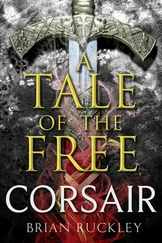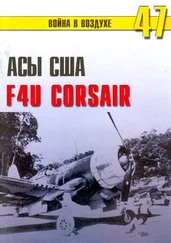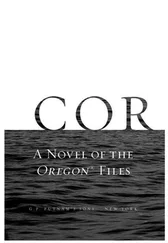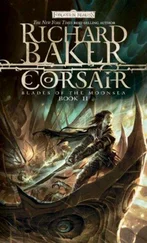‘How can your grandfather be so sure?’ he asked Ibrahim. ‘I have not the least idea how far we have travelled.’
‘My grandfather has crossed the desert at least thirty times,’ Ibrahim answered proudly. ‘In his head he keeps a count of the days and hours on this journey, even the number of paces. He listens to the sounds of the desert, and he says that every part has its own feeling which tells him where he is. When in doubt, he smells the sand.’
Hector had indeed noticed how, from time to time, the old guide took up a fistful of sand and held it to his face. Now he was too tactful to question Ibrahim’s assertion. Bourdon, however, was more dubious. He quietly scooped up some sand and wrapped it in a cloth. The following day he placed the sample in the old guide’s hand and asked Ibrahim to enquire from his grandfather how many days were left until the coffle reached the next watering place. The old man sniffed the sample and, with an angry outburst, flung it down in disgust. ‘What did he say?’ Bourdon asked. Ibrahim looked hurt as he translated, ‘My grandfather says that he is being taken for a fool. Either that, or the caravan has gone in a circle and we are back where we were yesterday.’
Bourdon was crestfallen. ‘Please apologise to him from me. I meant no harm. All my life I have lived among rogues and charlatans so I always suspect some sort of cheat.’
Yet even Hector had reason to doubt the old man when the caravan crossed a low range of rocky hills and Ibrahim rode up to him to say that his grandfather had announced that they should be in sight of the longed-for watering hole. Hector strained his eyes, but could see nothing. The desert stretched out as usual, bare, monotonous, and utterly devoid of life. There was not even the false glimmer of a distant mirage which so often duped him into thinking that a lake lay ahead. Suddenly his camel lurched off at a trot, and within a dozen strides was plunging along at a mad gallop. All around, the other camels were similarly stampeding. They surged forward in a roaring, incoherent mass. Ahead, Ibrahim was goading his camel even faster, kicking up a cloud of dust. After some three miles of this mad careering gallop, Ibrahim drew to a halt, jumped down and began to scrabble at the ground, peeling back a cover made of camel and goatskins. Beneath the cover the ground was a water soak which had been protected from the sun. Ibrahim and the camel drivers dug troughs which filled with a few inches of water, and the thirsty camels shoved and jostled, biting and kicking one another as they fought to suck up the water that they craved. Ibrahim’s face beneath his great bush of hair broke into a broad grin. ‘My grandfather has succeeded again,’ he exulted. ‘The worst is over.’
When the camels had slaked their thirst, he asked Dan, Hector and the others to go on ahead with him. ‘There’s a second, better, waterhole about an hour away. I will show you how we can harvest the desert’s bounty. It’s time to celebrate with a feast.’
‘Please, no more camel’s intestines,’ groaned Bourdon.
‘No. This time we’ll have roast ostrich.’
Sure enough, as they approached the next waterhole, a flock of about twenty ostrich ran off. The giant birds paced away across the desert, their wings outspread. Hector had come across ostriches in the Emperor’s menagerie. But this was the first time he had seen the birds in the wild.
‘We’ll never get close enough to shoot them. They run as fast as a galloping horse,’ he said to Ibrahim.
‘That’s not how we’ll do it,’ the young man replied. ‘This waterhole is where the birds prefer to drink. All we have to do is dig some holes in the sand where you and the others can lie hidden with your muskets. The birds are suspicious of camels so I’ll take them back to the coffle, and bring the caravan here at dusk. Good hunting!’
The ambush was easier than Hector had anticipated. He and his three companions prepared their hiding places. Less than an hour after Ibrahim had ridden away, the flock of ostriches came walking back across the desert, unaware of any danger. The hidden musketeers waited until the great birds made easy targets. Their first volley brought down three ostriches. When the flock foolishly came back a second time, they killed another four. That evening the entire caravan fed better than it had done for many weeks, and Hector fell asleep on a patch of soft sand. He was gorged on roast ostrich meat.
A cry of pain awoke him. He sat up, feeling slightly groggy, and looked around. His eyes had to adjust to the half-darkness. It was still several hours before dawn but the moon had risen and was shedding enough light to see that the camp was in uproar. Dan was already on his feet, a pistol in his hand. Their camels, which had been hobbled kneeling, were straining at their bonds as they tried to rise to their feet. They were roaring and moaning in fright. In the distance there were shouts of alarm. Suddenly a figure flitted between Hector and the last embers of the campfire. For a heart-stopping moment he thought it was a djinn, one of the spectres which Ibrahim had spoken about, evil spirits which wander the desert in the form of men or animals or dust devils. This one had assumed the shape of a human. It was pale grey from head to foot, gaunt and stark naked. It held a spear in each hand, and the hair on its head was long and filthy. As the figure glanced towards him, the creature’s eyes glittered for a moment in the moonlight. It took Hector a few seconds to realise that what he was looking at was a desert thief.
The attack was over before anyone could react. Ibrahim lit a brand from the fire and went to check their losses. Two camel saddles were missing, and several strips of dried camel meat. One of their animals was bleeding from a deep gash where a thief had stabbed it in the shoulder with his spear. ‘The bandit probably hoped to cripple the creature so we had to leave it behind,’ he commented glumly. He called out for his grandfather to come to look, and when there was no reply, went to where the old man had lain down to sleep beside a thorn bush. He found him sitting, dazed from a blow to the head. With his acute hearing Abdullah had been the first to detect the presence of the thieves as they crept into camp, and had tried to intercept them. They had struck him down without mercy. ‘They must have been watching the waterhole, waiting for a coffle to show up,’ said the old man after he had recovered enough to speak, and various merchants arrived with similar tales of thefts and losses. ‘This time we were lucky. They were only sneak thieves. If there had been more of them, we might have been murdered as we slept.’
‘Will they attack again?’ demanded the merchant’s spokesman angrily. He was wearing the same faded red burnous as the day Hector first saw him, and was in a foul mood. He had lost several packs of trade goods.
‘They are Tooarick of the Labdessah tribe. They live by plunder,’ answered the guide. ‘It is best that the caravan moves on tomorrow before the word gets out that we are here, and the Labdessah summon their fellows.’
The spokesman rounded on Hector. ‘You are meant to be our guards! Instead you were snoring by the fire.’ He was spitting with rage. ‘When we march, you will be sure to protect us. Otherwise it will be the worse for you!’
‘There is no point in quarrelling,’ the old man intervened. ‘Save your strength for the journey. Now that the Tooarick have found us, they will not give up. They will follow us like jackals.’
His prediction was painfully accurate. The coffle moved on the next morning but the thieves struck again during the following night. Hector and his companions stayed on guard with their muskets but failed again to detect the intruders and did not fire a shot. The Labdessah were expert thieves. Stripped naked, their bodies smeared with ashes, they crept their way into the encampment and made off with more trade goods. They cut the hobbles of a dozen camels and drove them off into the darkness. A merchant who tried to stop them was stabbed in the stomach and died four hours later. The merchants swore and raged. They shouted at Hector and his companions, and blamed Abdullah for their troubles. But there was no remedy. On the third night the caravan was robbed yet again, and however urgently the travellers marched onward, they knew they were failing to shake off their tormentors. They embarked on a sand sea where a succession of tall dunes extended in every direction like waves on the surface of an ocean. If they looked behind them from the summits of the taller dunes, they could see in the far distance a Labdessah outrider mounted on his camel. He was tracking them, waiting for them to make camp so that his fellows could plan their next attack.
Читать дальше








